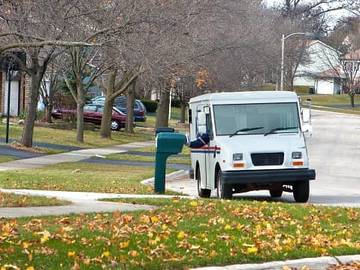As an adverb, posthaste means "with all possible speed." It's found in contemporary writing, but we might think of it as an archaic expression, or at least one that cleverly alludes to days of yore, like on The Simpsons when Mr. Burns, making a rare venture out into the world in his horseless carriage without Smithers, commands to Marge: "You there, fill it up with petroleum distillate, and re-vulcanize my tires, posthaste!"

"Haste, post, haste!"
Even when posthaste is used in contemporary journalism—in the same contexts in which one might see the initialism ASAP or the hospital jargon stat—there is often a wink accompanying it:
These brownies are nutty and a little savory, with an aroma so intoxicating, you may find that your nose constantly gravitates towards the pan, pulling the rest of your head with it. If you like tahini desserts or sweet sesame treats, you should make sesame oil brownies posthaste.
— Claire Lower, Lifehacker, 1 Sept. 2020When the House passed in May the HEROES Act designed to bring billions to cash-strapped New York, Governor Andrew Cuomo urged the Senate to pass it posthaste—warning that “there will be cuts” without the financial aid.
— Robert Pozarycki, amNY, 6 Aug. 2020
The Origin of 'Posthaste'
If you didn't already know the etymology of posthaste, you might see the post at the beginning of the word and assume that it's functioning as a prefix meaning "after," the way it does in Latin words like postmortem, or in English words like postgame or postgraduate, or in movements of art or critical theory like postmodernism or post-structuralism.
Not quite. The post in posthaste is the same as in post office: it has to do with the mail. In Middle English, post haste was a noun for the speed with which a person delivering mail was pressed to do their job.
In the 16th century "haste, post, haste" was used to inform couriers (also called posts) that a letter was urgent. Post-haste later came to refer to great promptness and speed for any purpose, and was used in phrases like in post-haste and in all post-haste.
In other words, the work of a courier was so routinely associated with speed and efficiency that it was used as a reference point in the language for others doing speedy labors. The notion caught on so quickly that post-haste was seeing use as an adjective and adverb by the end of the 16th century.
BUSHY. Old John of Gaunt is grievous sick, my lord,
Suddenly taken; and hath sent poste-haste
To entreat your Majesty to visit him.
— William Shakespeare, Richard IICASSIO. The Duke does greet you, general,
And he requires your haste-post-haste appearance,
Even on the instant.
— William Shakespeare, Othello
The modern U.S. post office was modeled on the post roads in England used to deliver royal mail, with couriers posted at intervals to deliver the mail along the route. The association of courier service with speed and promptness occurs throughout a lot of popular culture, from the character Mr. McFeely from Mister Rogers' Neighborhood ("Speedy Delivery!") to Mr. ZIP, a character introduced by the U.S. Postal Service to promote the then-new system of ZIP codes.
As delivery methods were upgraded, post-haste as a command carried with it a scent of antiquity, and was used as a signifier of such. Even in the 19th century, it was a go-to word for authors writing scenes set in times past:
The King, who was now in a hurry to marry Anne Boleyn, thought this such a good idea, that he sent for Cranmer, post haste, and said to LORD ROCHFORT, Anne Boleyn's father, 'Take this learned Doctor down to your country-house, and there let him have a good room for a study, and no end of books out of which to prove that I may marry your daughter.'
— Charles Dickens, A Child's History of England, 1851-1853




